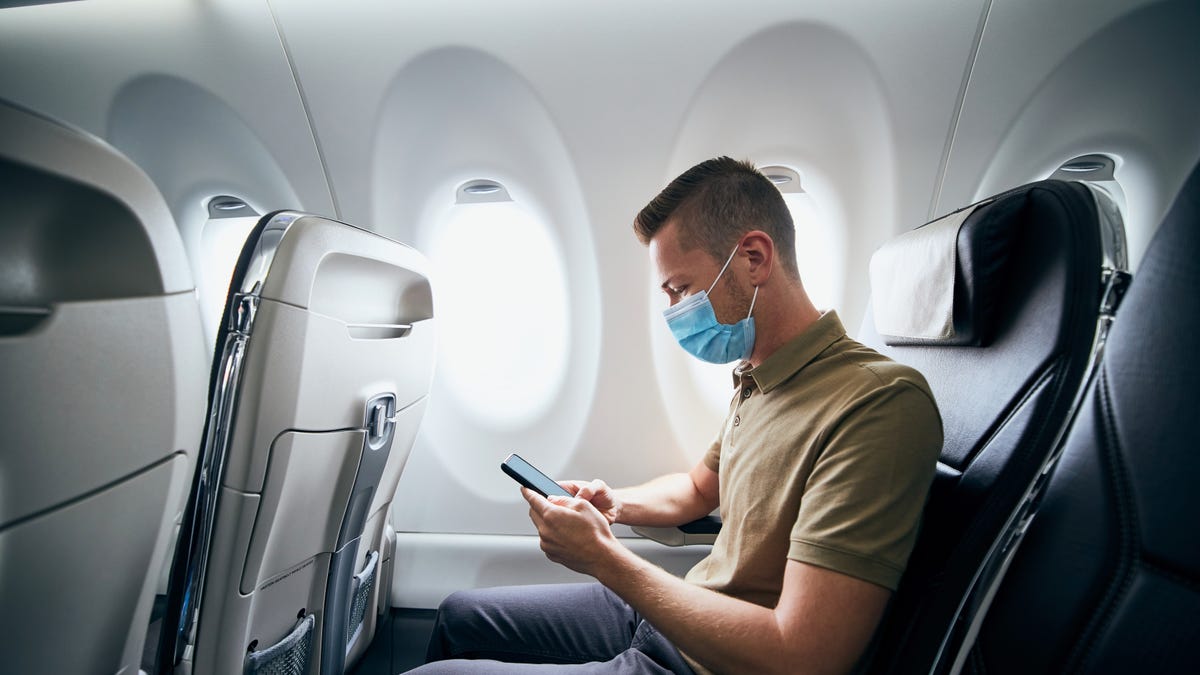You Now Have to Prove You Don't Have COVID Before Flying to the U.S. From Abroad - 4 minutes read

With COVID-19 cases surging in the United States and abroad, there’s really no justifiable reason to travel internationally for pleasure right now. But if you do have an unavoidable need to travel to a different country, you’ll need to prove you don’t have COVID before you return. The Centers for Disease Control has instituted a new policy requiring anyone returning to the United States from abroad to supply a negative COVID test (or proof of recovery from the virus) before stepping onboard a plane.
The policy goes into effect on Jan. 26, and will put the onus entirely on airlines to refuse seats to passengers who fail to comply or meet the requirements.
PCR tests or proof of recovery are required
The CDC’s order requires anyone traveling to the United States from abroad to provide proof of a negative test obtained no more than three days prior to their departing flight. If a traveler has tested positive for the virus within the last three months, they must provide proof of their recovery from a licensed healthcare professional or healthcare official.
Antibody tests don’t satisfy the CDC’s rules, and the announcement makes no mention of rapid tests. It’s probably the best course of action to get a PCR swab test if you have to travel internationally. If a traveler fails to present a negative test on the required timeline, the airline is mandated to refuse that traveler entry to the plane, per the CDC.
To display proof of test results, the CDC recommends bringing a “paper or electronic copy of their test result for review by the airline before you board and for potential review by public health officials after you arrive in the US.”
If you’re supplying proof of recovery from COVID, the CDC requires travelers to comply with the guidelines below:
You may travel instead with documentation of your positive viral test results and a letter from your healthcare provider or a public health official that states you have been cleared for travel. The positive test result and letter together are referred to as “documentation of recovery.”
If you wind up testing positive before your return flight, expect an impromptu quarantine in your vacation destination. Airlines aren’t likely to reimburse you for a missed flight due to a positive test. The rules apply to “all air passengers, 2 years of age or older, traveling into the US, including US citizens and legal permanent residents,” the agency says.
Why travel internationally right now?
International travel has tanked during the pandemic, understandably. Americans are still barred from entering most of Europe, and many of the destinations currently open to U.S. travelers are in the Caribbean, Mexico, South, and Central America, and Africa—all of which impose their own varying levels of coronavirus restrictions on entering travelers.
On Dec. 28, the CDC began requiring U.S.-bound travelers from the United Kingdom to produce a negative coronavirus test, though the directive now applies to everyone bound for the states.
Where do you get tested in a foreign country?
No matter where you are, you’ll have to be able to find a legitimate medical clinic with access to a supporting lab that supplies legitimate results so you can ensure you are meeting the guidelines for your return trip.
As USA Today recommends, airlines and tourism boards can likely help you in this pursuit:
Look for guidance from airlines, hotels, tourism bureaus and health care providers in the coming weeks. Travelers to Hawaii have to provide a negative test to enter the state and bypass a mandatory quarantine, and airlines and tourism officials have provide extensive details on testing options. American Airlines said it will not be providing tests for passengers.
People who’ve been vaccinated still need to show test results
Given the early stages of the U.S.’ vaccination program, most people won’t be inoculated from COVID for a while. But even if you have been vaccinated, the CDC still wants you to get a test if you’re returning from abroad.
There’s no timeline for when these requirements might be lifted, but you can expect them to remain in place as long as the pandemic continues to batter the country (and the world).
Source: Lifehacker.com
Powered by NewsAPI.org